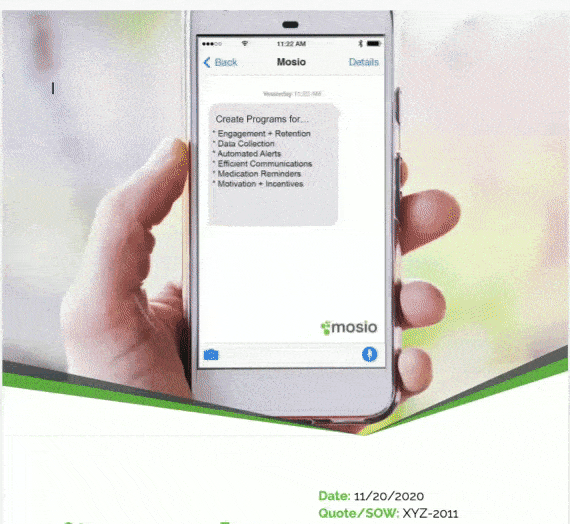Do you know how to manage a clinical trial?
Straight off the bat, here are a few reasons to utilize text messaging in your clinical trial:
- Streamline communication with study participants.
- Ensure adherence to study protocols.
- Bolster study participant engagement.
This article will break down how you can leverage digital technology to centralize communication for your clinical trial.
Designing A Clinical Trial (4 Major Hurdles)
Designing a clinical trial is the first step in managing it effectively. There are many different components to designing an effective clinical trial that collects accurate data from participants.
Here are a few key hurdles to overcome as you embark on designing a clinical trial:
Recruiting Participants
Recruiting participants for a clinical trial is often a challenging task. It is essential to develop a comprehensive recruitment strategy that targets the appropriate demographics and highlights the potential benefits of participating in the trial. Clinical staff should tailor their recruitment strategy to the demographics they are pursuing and play to their specific interests.
Informed Consent
Informed consent is a critical part of the clinical trial process. This involves providing potential participants with all the information they need to make an informed decision about participating in the trial. This includes information about the risks and benefits of the study, the study procedures, and the participant’s rights. Before any study procedures are conducted, clinical staff must obtain informed consent from the prospective participant.
Managing Data
Data management is also just as important. You must ensure staff are collecting and storing data in a secure and organized manner. This may involve using electronic data capture systems, which allow data to be collected and stored electronically, reducing the risk of errors and increasing efficiency.
Data management also includes ensuring that data is accurate, complete, and consistent. This may involve developing data management plans, quality control checks, and data validation procedures. When you are using digital technology to power your data collection efforts, this can help streamline data collection and eliminate the confusion caused by the disjointed nature of paper-based data collection.
Monitoring & Safety
Monitoring and safety are crucial components of any clinical trial. They involve ensuring that the study is conducted in accordance with the study protocol and that the participants’ safety is always the top priority. This may involve monitoring the participants’ health status, adverse events, and any other issues that may arise during the study.
Clinical trial teams must develop a comprehensive monitoring plan that outlines the procedures for monitoring the study. The plan should include monitoring visits, safety reporting, and data monitoring. Teams can leverage text messaging solutions to provide participants with timely reminders. For instance, they can get reminders on when to take medications and submit data.
Using Text Messaging Solutions For Clinical Trials
Here are some ways that text messaging can enhance the clinical trial process:
Participant Engagement
When it comes to keeping participants engaged throughout the study, team members can use text messaging to send reminders about study visits, medication reminders, and other actionable study-related tasks. This can help improve adherence to the study protocol and reduce the risk of dropouts.
Data Collection
You can also use text messaging to collect data from participants without delay. Teams can use text messaging to send surveys and questionnaires to participants, which can be completed through a link sent via text to ensure compliance. The instant notifications offered by SMS communication are useful for collecting data on patient-reported outcomes speedily.
Choosing A Text Messaging Solution (Try Mosio)
Mosio is well-equipped to meet your needs as a text messaging solution for clinical trials. From medication and appointment reminders to automated text messaging, Mosio can drive retention and engagement among study participants.






